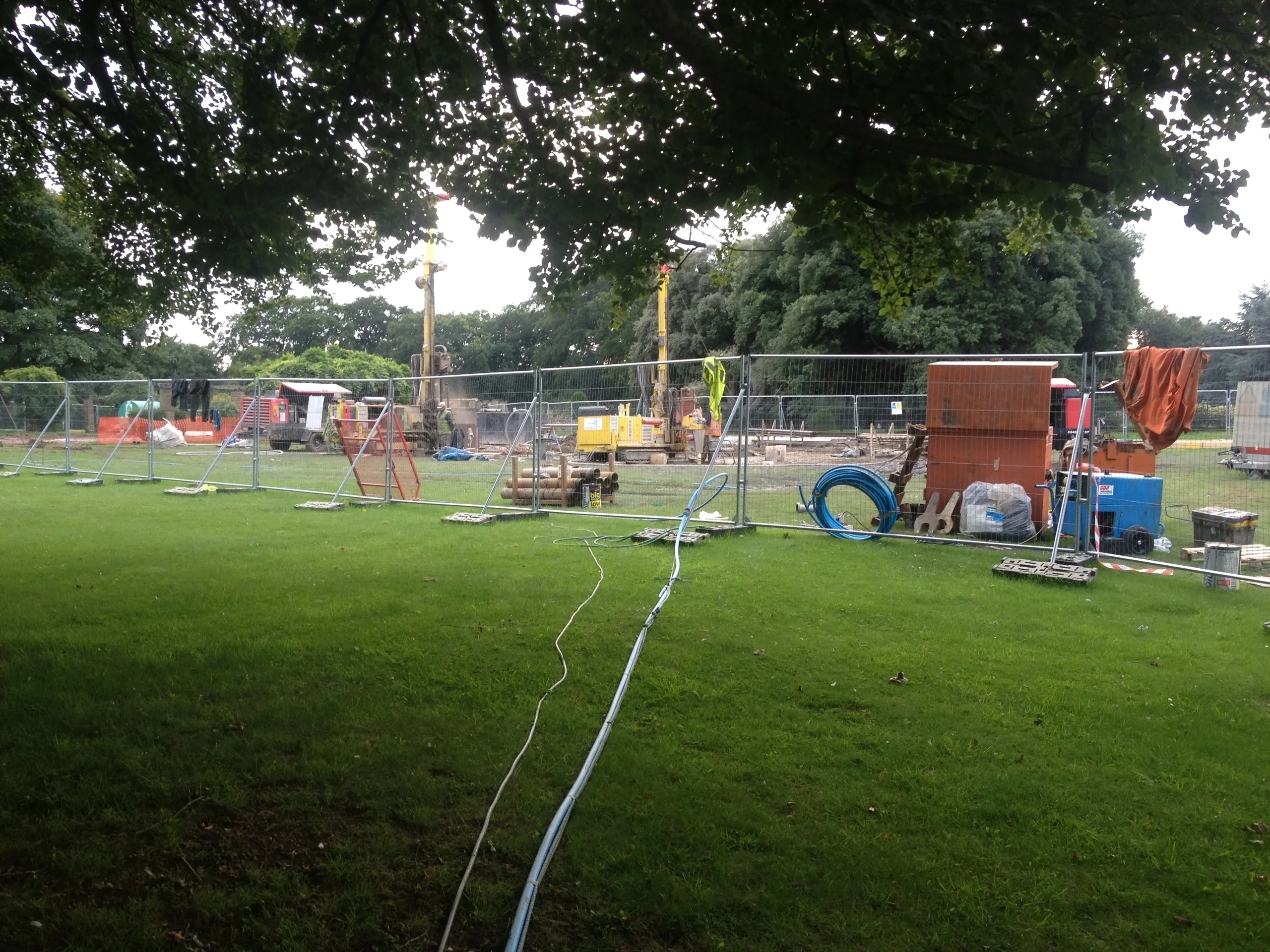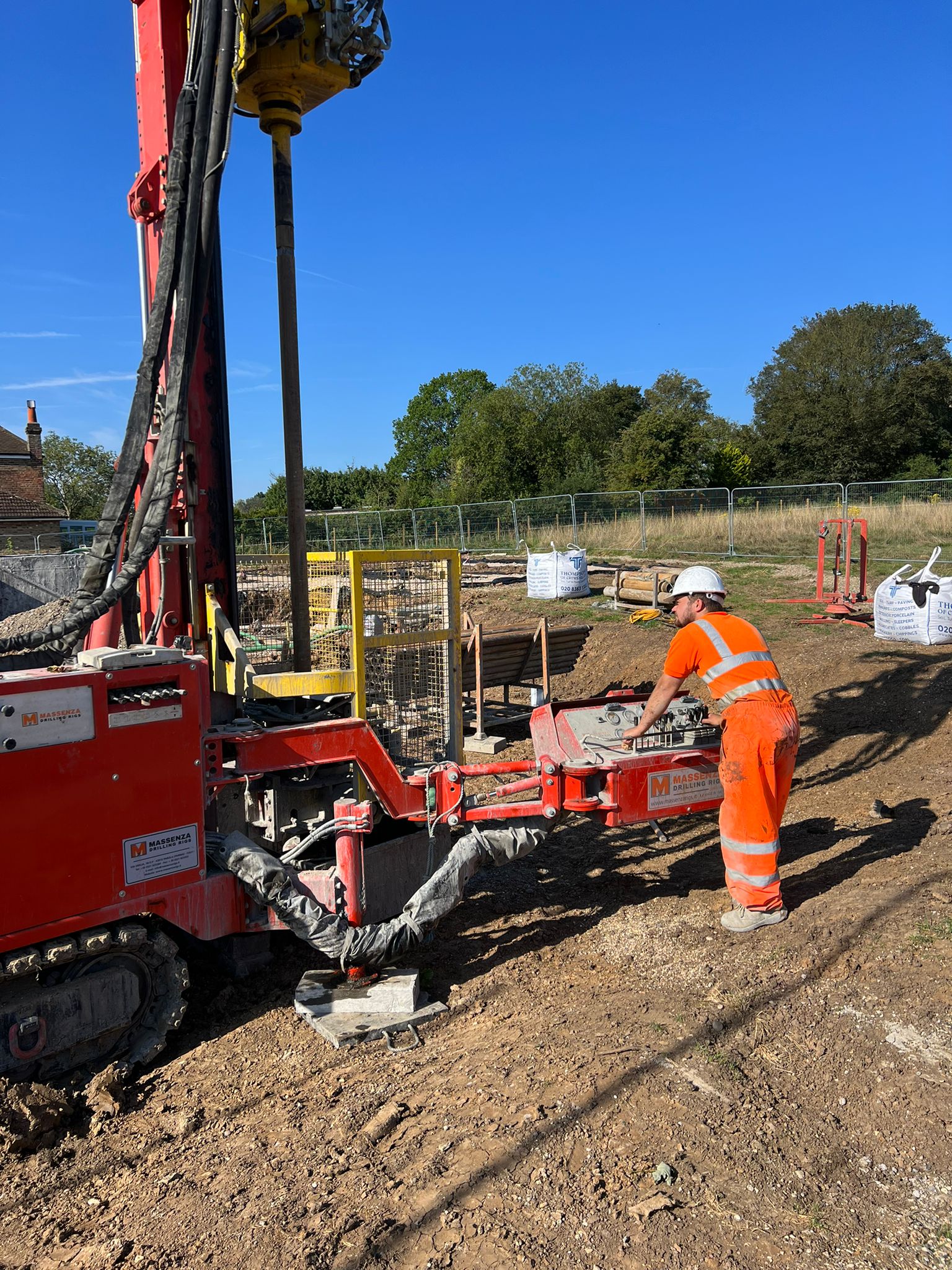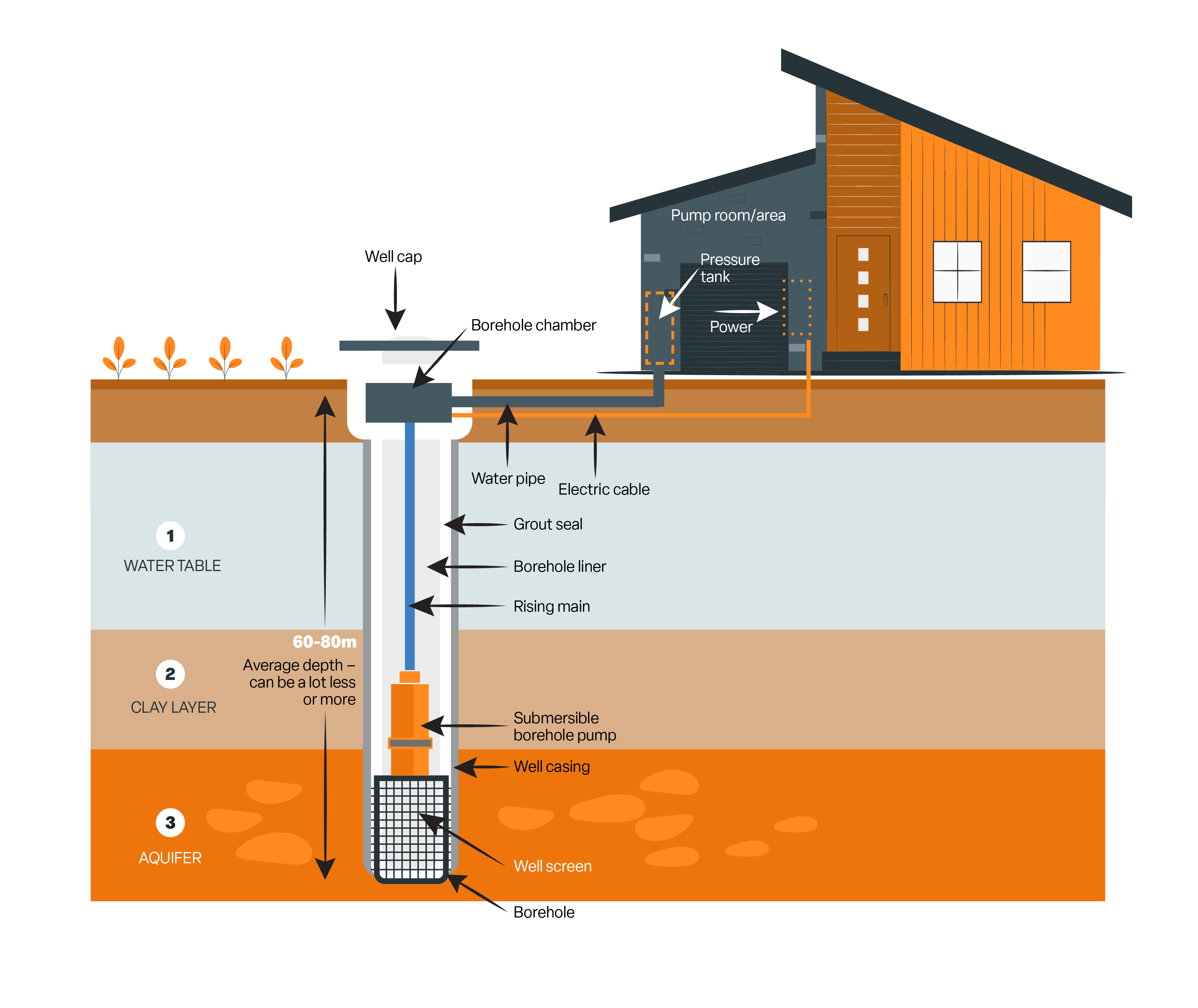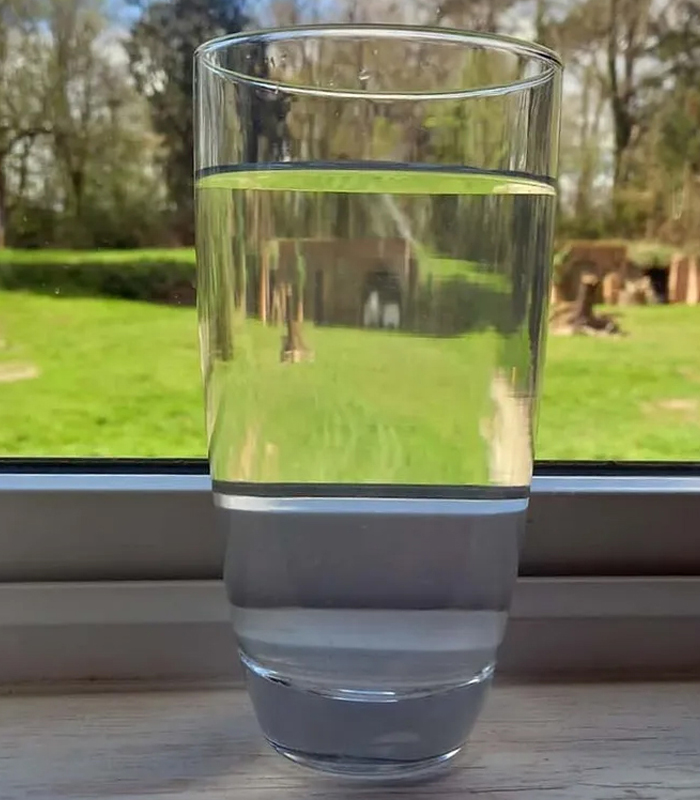
How Much Does It Cost to Install a Borehole in the UK? A Complete Guide
What Is A Borehole?
A borehole is a deep, narrow hole drilled into the ground to access water, often for a private water supply.
Instead of relying on mains water, a borehole water supply taps into groundwater, providing a reliable source for drinking, garden irrigation, and other uses. The process of drilling boreholes involves reaching a suitable depth based on local geology to ensure consistent water quality.
Once drilled, the borehole is equipped with a submersible pump and pipe to bring water to the surface. With proper water testing and maintenance, boreholes can provide an independent and sustainable surface water supply for your property.

How Does a Borehole Work?
A borehole is a sophisticated system designed to tap into underground water sources, ensuring a steady and reliable water supply. Here’s a step-by-step breakdown of how a borehole works:
-
Drilling: The process begins with drilling a deep hole into the ground using a drilling rig. The depth can range from 60 to 200 meters, depending on the local geology and the water table.
-
Casing: Once the hole is drilled, a steel casing is inserted to prevent the borehole from collapsing and to ensure that water flows freely.
-
Screening: At the bottom of the borehole, a screen is installed to filter out sediment and debris, ensuring that the water remains clean.
-
Pumping: A submersible pump is then placed at the bottom of the borehole. This pump is responsible for extracting the water and bringing it to the surface.
-
Treatment: Depending on the intended use, the water may undergo treatment such as filtration or disinfection to ensure it is safe for drinking, irrigation, or other purposes.
By understanding these stages, you can appreciate the complexity and efficiency of a borehole system, which leverages local geology to provide a sustainable water source.

Benefits of a Borehole Water Supply
A borehole water supply offers numerous benefits that make it an attractive option for many property owners:
-
Reliability: Boreholes provide a dependable water supply, reducing the risk of interruptions and issues like burst pipes.
-
Constant Water Pressure: Enjoy consistent water pressure, even during peak usage times or drought conditions.
-
No Hose Pipe Bans: With a borehole, you won’t be affected by hose pipe bans, which can be particularly restrictive during dry periods.
-
Pure Water: Borehole water is often free from contaminants and pollutants, offering a purer alternative to mains water.
-
Cost Savings: Over time, a borehole can significantly reduce your water bills, making it a cost-effective solution for high water usage needs.
These benefits highlight why many are turning to borehole water supplies as a reliable and economical alternative to traditional water sources.
Advantages of Having a Borehole Water Supply
Beyond the immediate benefits, having a borehole water supply also offers several long-term advantages:
-
Increased Property Value: Properties with a borehole can be more attractive to potential buyers, potentially increasing the property’s market value.
-
Reduced Water Costs: For those with high water usage, a borehole can lead to substantial savings on water bills.
-
Improved Water Quality: Borehole water is often of higher quality, free from the chemicals and additives found in mains water.
-
Increased Water Security: A borehole provides a secure and independent water source, reducing reliance on public water supplies.
-
Environmental Benefits: Using a borehole can lower your carbon footprint by eliminating the need for extensive water treatment and transportation.
These advantages make boreholes a smart investment for those looking to enhance their property’s value, water quality, and environmental impact.
How Much Does A Borehole Actually Cost To Drill?
How Much Do Borehole Costs Actually Amount To?
How Much Does A Borehole Actually Cost To Drill?
A borehole can be a great investment to save money on water bills, but how much does a borehole actually cost to drill? The borehole cost to to drill depends on various factors such as the depth, local geology, and the equipment needed. On average, the cost to drill a borehole ranges from £8,000 to £15,000. Deeper boreholes typically cost more due to the extra drilling and equipment required, like borehole pumps and pressure vessels.
Once installed, a borehole can supply up to 20,000 litres of fresh drinking water daily, reducing your reliance on mains water supply. Though the initial borehole installation cost may seem high, you’ll see savings in the long run as boreholes cut down on water costs and help with cutting costs on bills.
In addition to the initial cost, the annual running cost of maintaining a borehole system varies based on water usage, which is an important factor to consider for the ongoing financial commitment.
Regular pump maintenance and an abstraction license from the Environment Agency are important to ensure your system stays efficient. Properly maintaining the pump and ensuring the system doesn’t run dry can prevent costly repairs. The water quality will also need to be checked regularly to ensure it’s safe for drinking.
Borehole Drilling Cost Breakdown
Here’s a simple chart that shows average drilling costs based on depth:
|
Depth Range (meters) |
Estimated Cost (£) |
|---|---|
|
0-30m |
8,000 – 10,000 |
|
30-60m |
10,000 – 12,000 |
|
60-90m |
12,000 – 15,000 |
By investing your land in a borehole, you’ll have a sustainable water source that can help you save money over time!

Factors Affecting Borehole Drilling Costs in the UK
Several factors can influence the cost of drilling a borehole in the UK. Understanding these can help you better estimate your potential expenses:
-
Local Geology: The type of rock and soil in your area can significantly impact the drilling process and costs. Harder rock formations may require more specialized equipment and longer drilling times.
-
Depth of the Borehole: The deeper the borehole, the higher the cost. Deeper boreholes require more drilling and additional equipment.
-
Equipment Used: The quality and type of equipment used can affect the overall cost. High-quality, durable equipment may have a higher upfront cost but can offer better long-term value.
-
Water Table: The depth of the water table in your area can influence both the drilling process and the type of equipment needed.
-
Site Access: The accessibility of your site can also affect costs. Difficult-to-reach locations may require additional labor and equipment, increasing the overall expense.
By considering these factors, you can better understand the potential costs involved in drilling a borehole and plan your budget accordingly.
Private Water Supply
The Benefits of a Private Water Supply and What It Costs
Ever thought about having your own private water supply? A borehole water supply could be the perfect solution! Not only does it give you access to fresh drinking water straight from deep in the ground, but it also helps you save money on your water bills in the long run.
So, how much does it cost to install a borehole in the UK? The price can vary depending on a few factors like local geology, location, the depth needed, and the equipment used, but typically, you’re looking at around £8,000 to £15,000 to get everything set up.
This cost includes drilling the borehole, installing a submersible pump, and a pressure vessel to keep things flowing smoothly.

